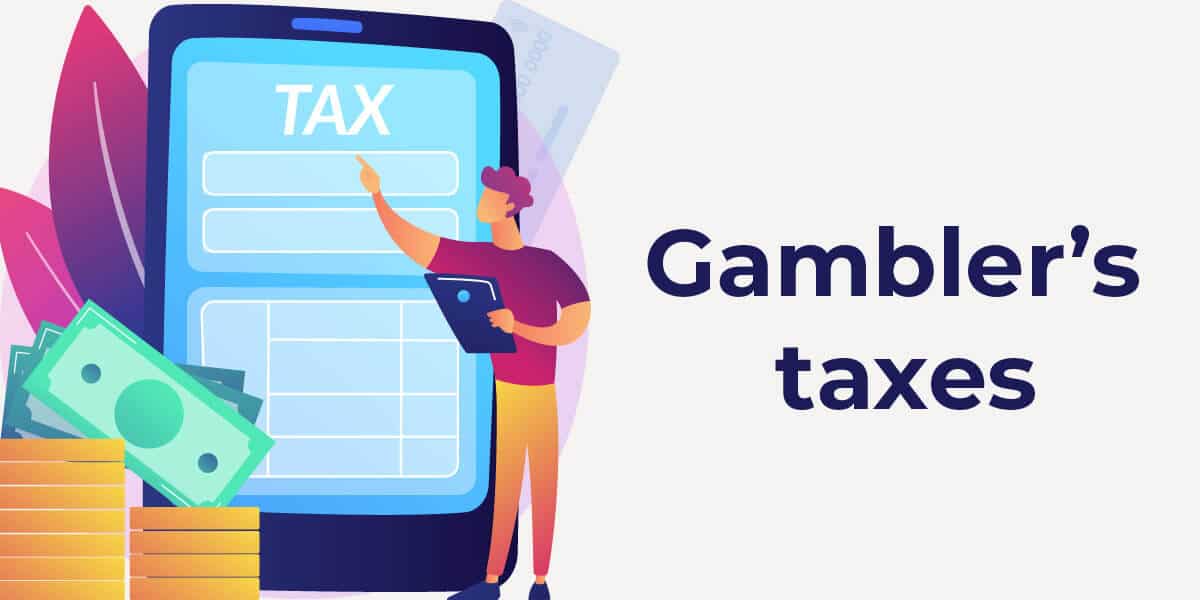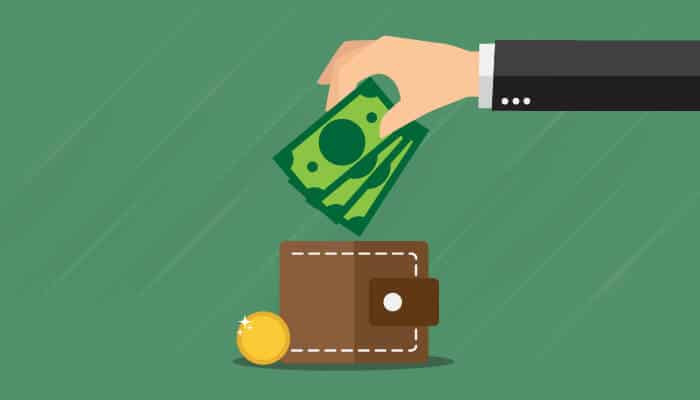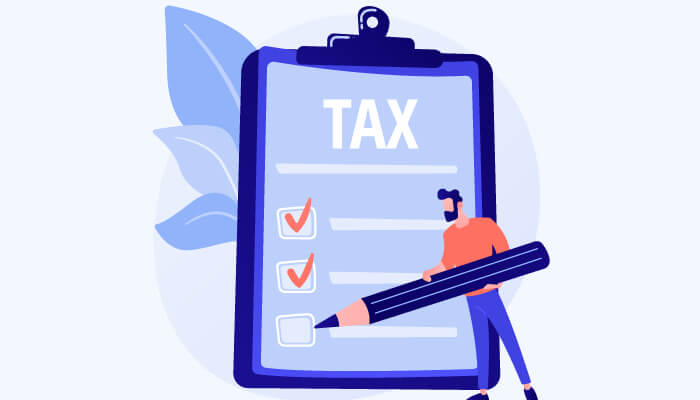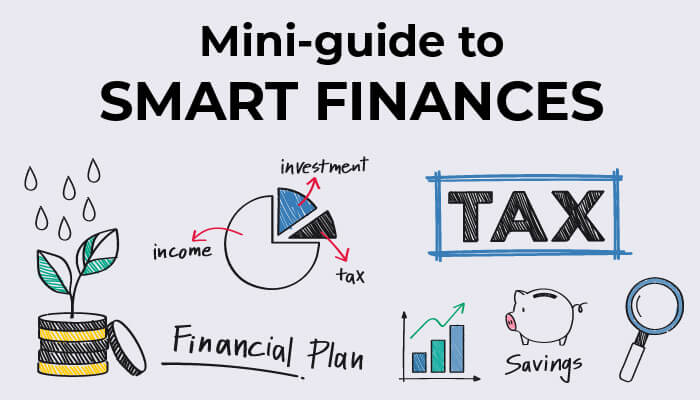Short Guidebook on Gambler’s Taxes

Handling your funds pre-gambling and post-gambling is essential for a balanced financial approach. If you have any queries about taxes, legal context, and the topic’s history, we are here to help. By employing our knowledge, we can solve your issues and get you informed easily through our informational pages.
Also, check our bolded messages, which are pocket-sized advice from casino experts, aimed at making everything convenient and enjoyable for you.
Player taxes FAQ
Professional players’ taxes
Tax history and related issues
Mini-guide to smart finances
What to take home
Player taxes FAQ
Answering 7 essential questions
Considering the similar things we have encountered almost everywhere during our research, we concluded that a set of questions need to be answered.
You can rely on our objective expertise, so you know that our answers are truthful and simple to understand.
1. Do I have to pay a tax on my winnings? If yes, at what sum?
No, you don’t have to pay taxes on your gambling winnings in the United States. This is a general rule that is in place since the legislative changes adopted in 2001. There is no exception to this rule, no matter how much money you derived from your gambling.

For example:
Let us say you play a casual game of Blackjack and you end your session by winning $100. If the cashout process at the online casino of your choice is smooth, then your banking account or e-wallet will be filled with $100, which will be entirely yours.
But what happens if you win a considerable amount of money?
The status of your gambling taxes does not change if the sum increases.
For example:
Let us say you are a big fan of spinning the reels of a slot machine. There is a wide selection of mega-jackpots from trusted US game providers. If you win a staggering $1,000,000, there is still no tax attached.
Be aware: If you win a significant sum of money, the casino may pay you in pre-set instalments. The rules should be found in the terms and conditions.
2. Do I have to declare my gambling winnings?
No, you don’t have to declare your gambling wins further to any authorities. This is a direct consequence of the law that allows your gambling-related funds to be tax-free. It is a true statement for any gambling that you can access in the Kingdom.
That means anything from:
- Casino games;
- Lotteries;
- Sports betting;
- Bingo.
What do you have to be careful of?
If you get a hold of a significant sum of money, you have to handle it carefully through the banking service of your choice.
3. Do United States professional gamblers have to pay taxes?
The short answer is no. Neither professional nor amateur gamblers are required to pay any taxes.
What is a professional gambler defined as?
A professional gambler is a person that derived the most significant chunk of their income from played luck-based games or even skill-based games like poker.
4. Is the 0% tax available on bingo raffles and lottery draws?
Yes, the law makes no differentiation between winning at a casino table or winning through a lucky ticket at the National Lottery.
Why should you know these issues?
According to a 2019 detailed overview of the US market, more than 30% of the respondents participated in the National Lottery, proving the popularity of this event. The second most played game type is bingo, according to the same source.
5. How are my gambling winnings paid to me?
There is no universal answer to this question because each casino sets its own rules for this issue. But we can show you some tricks to know how to act better.
Where should you find this information?
Each online casino with a USGC licence is obligated to explain in its Terms and Conditions how will they handle their money. So, you will have to check their policy there. You can even ask the support team through chat or email to help you with an answer.
When should I look for this information?
We advise you to look for this sensitive funds-related information before you wager significant sums of money. Gambling has to be done while wholly informed and prepared with a balanced gambling budget.
6. What is the status of gambling tax in Ireland?
The status of gambling winnings in Ireland has the same status as in Britain. Thus, there are no taxes involved in your wins, no matter the sum that is won.
The reasoning is the same. Gambling-derived funds are not considered to be income. Therefore, they are not taxed. Also, they are not considered capital gain either.
7. Can I give away my gambling winnings?
Yes, you are allowed to.
Note, however, that making big transfers from your account to others may be subjected to taxes by the banking service. Also, giving money away to a relative or loved one may be subjected to the Inheritance Tax.
Professional players’ taxes
The current gambling taxation context
We aim at making online gambling easier for you through all the means that we have. Thus, we need to give some context information and make your tax knowledge understandable. This section will take you through the following topics:
- General shortcuts to the US taxation policy;
- Professional and over-seas gambling;
- The status of gambling losses.
The general context of US taxes
In the Kingdom, there are three layers of authorities that are responsible for keeping everything under legality: the central government, devolved institutions and local authorities. For a clear understanding, devolved offices are the ones that work locally on the part of Her Majesty’s Government.

The central government mostly collects basic taxes. These include income taxes, insurance, added value (including the fuel one), and corporation tax.
Interesting fact:
- In between 2014 to 2015, the authorities collected over $600 billion in taxes, which is over 37% of the total national GDP.
- In terms of the biggest sources to the total GDP, income taxes, added taxes, and corporation taxes make up the top three.
More details on professional gambling
Again, professional gambling is not taxed in the United States. The reason is quite interesting. Income taxes are applied to trades and the financial results that they bring to the worker. According to the current legislation, gambling is not considered a trade. This is true, no matter if the individual makes a living off it.
Everything in this area is regulated by the statements of Her Royal Majesty’s Revenue and Customs Business Manual. There, a systematic bet placement enough to derive a stable income is not considered a trade.
How is this legally motivated?
It goes back to 1925 when a passionate bettor in horse races was taxes around $300 for his streak of lucky wins. Alexander Graham contested this in court and won, as the final decision stated that the state could not tax a habit, as Graham was just passionate about the racetrack events.
What you should know when you gamble abroad
Obviously, not all EU countries or over the ocean places have the same 0% tax policy. But you should not worry if you gamble abroad and win, your wins should be protected.
Why is that the case even if you win abroad?
Most countries have a treatise with the United States, where you can keep your overseas gambling wins, just like you would if you win at home.
What about gambling losses of pro-players?
Considering that winnings are not taxed, the reverse is also available, and so losses are not deductible. Another strong reason relates to the logistics of deductible losses. A taxpayer needs to manually keep track of their losses before claiming them as deductible pay. It would be a difficult task to deliver monthly.
There is an exception, however, backed up by the Business Income Manual.
For example:
If you participate in a gambling competition or tournament, sometimes you might pay a participate a fee. Such payments that you make for your hobby can be deducted if you request it.
Tax history and related issues
More knowledge on US taxes
As mentioned, context is extremely important. Your understanding of the current environment will make it easier to keep your funds protected and make wise decisions. This section will provide you with data on:
- The history of gambling taxes;
- Related payments you need to keep an eye on;
- Fiscal obligations on the part of casinos;
- A guide for smart finances when wagering.
A timeline of the US gambling tax
Before 2001, things were a bit different than the current state of events. Punters had an obligation to pay 9% of the total winnings. On the other side, the casinos had to pay the business levy 6.75% in total.
Nowadays, by the changes to the Gambling Act, casino corporations and smaller businesses operating in the US, aka accepting United States customers, have to pay 15% of their profits. This means that now gamblers are exempt from paying anything, while the duty relies on casinos exclusively.
How did this change come to be?
Considering that before the turn of the century, there was only a levy tax, it essentially meant that just local businesses were taking the hit. But most online casinos are, as we all know, offshore. The change balanced the duties of local and foreign businesses in the industry.
Interesting fact: The most common low tax places around the US are Isle of Man and Gibraltar.
Taxes on gambling-related sums
As established, there is no tax on lottery or casino jackpots. But if you invest your sums in successful ventures or real-estate, your dealings will be subjected to capital gains tax.
What is the definition of capital gains tax?
It is the money you owe to the state after you make profits when you sell an asset that has a bigger value at the time of you selling it versus when you bought it. You will pay this on the gain you have made, not on the total value the asset currently has.
You might also have to pay a tax on sums you inherit, which could have been made initially through gambling. The accepted limit over which tax is applied is$325,000, as long as it is given to a person and not donated to a charity or sports clubs.
Be aware: The standard inheritance tax rate is 40%.
The interest that you will get from holding your gambling wins in a bank account will be subjected to a tax. Grant that, it all depends on the context, and things will be different from person to person.
Taxes played by casinos
Moving on from the punters to the House, the latter is responsible for paying the taxes. Even if they are registered as offshores, casinos, which also operate in the US, have to comply with the US Point of Consumption Tax.
How does the Point of Consumption Tax affect casinos?
The taxation laws were changed to bring more focus on geographical positioning. It basically says that duties should be paid in the place where the service is consumed, not where it is sold. The result is that now offshore companies will be required to pay their duties to the state.
Money generated from casino revenue
The legislation changes seem to be profitable for the overall US budget. The total sums that were collected from the casino industry were almost around $3 billion. From this impressive number, more than one third were derived from remote/online gambling.
The current predictions of financial analysts say that the total collected sums will grow exponentially.
Mini-guide to smart finances
arepasandempanadasdistrict aims at being your trusted guide. That is why we would like to end this page by giving you a shortcut to simple strategies to gamble safe and gamble efficiently. Please consider the pieces of advice that follow.

1. Set up a budget
Before you set up your gambling sessions, you have to think through a budget. It has to fit your typical monthly spending and your regular income. Whatever you do, never go over what you originally set.
Tips: If you are a new player, a budget between $10 and $100 seems enough for a few sessions. Only after you get more comfortable, should you spend more.
2. Pick a game that fits you
This depends on what kind of gambler you are. If you are into simple, flashy stuff, then you might want to spin the reels. If you are more strategy-oriented, then you can try poker, baccarat, or any other card game.
3. Understand the game odds
Odds will basically dictate the level of risk you subject your wager to. Blackjack has the best odds in the classic casino genre, while the riskiest odds are attached to slots of wheel-based games.
4. Limit your sessions
Never go overboard with gambling. This is true for both your budget and the time you spend wagering. You can use the self-limiting options from licensed USGC platform and set up an average that you won’t be able to go over unless you manually change it.
5. Learn how the casino cashes out
It is essential to know how you will receive your winnings. That is why you have to know their cash out policies and time frames before playing heavily.
What to take home
The essential points found here related to the most asked queries related to gambling taxes, a social and historical view of the matter containing all the relevant changes, and we also integrated player and casino taxes in a much broader context.
We truly hope that our page and all our other guides are of help to you. Do not hesitate to keep in touch with us for more news and updates.
The sources consulted on this page
- Gambling participation in 2019: behaviour, awareness, and attitudes. Annual report – Updated publication of February 2021 – US Gambling Commission
- Annual Report and Accounts 2017-2018 – US Gambling Commission
- Inheritance Tax – gov.uk
- Capital Gains Tax – gov.uk
- Gambling industry in the United States (US) – Statistics & Facts – Statisa
